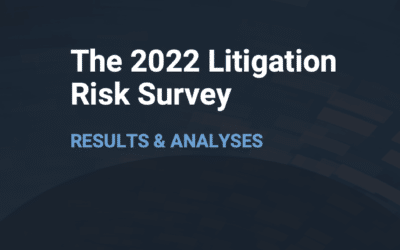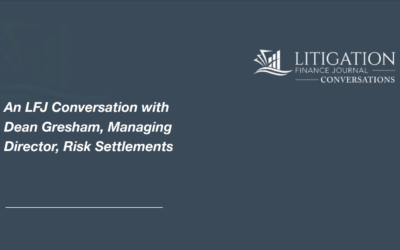On March 11, 2021, the Seventh Circuit issued an important decision in In re Navistar Maxxforce Engines Marketing, Sales Practices, and Products Liability Litigation (No. 20-1821), holding that class members who wish to opt out of a class action settlement must do so by following court-approved opt-out procedures rather than through insinuation. If not, those class members are S.O.L. (surely out of luck).
The Navistar MDL Settlement
The Navistar MDL concerned alleged defects in the engines of certain 2010-13 heavy-duty trucks manufactured and sold by Navistar. The parties reached a class settlement in 2019, with preliminary approval granted on June 12, 2019. Paragraph 29 of the preliminary approval order specified the process for a class member that wanted to opt out of settlement, requiring the class member to send the claims administrator the following information:
- The class member’s full name, address, and telephone number;
- The model, model year, and VIN of the class member’s class vehicle;
- An explicit and unambiguous statement that the class member wanted to be excluded from the Navistar settlement class; and
- A signature from the class member.
Class members were given 60 days to opt out from the date notice was provided. And the preliminary approval order contained one more critical clause: “All Class Members who do not Opt Out in accordance with the terms of this Order…shall be bound by all determinations and judgments concerning the Settlement.”
The Ohio Litigation
Separate and apart from the MDL, Navistar had been concurrently litigating similar claims in Ohio state court against Drasc, Inc. and S&C Trucks of Winklepleck, Ltd. (collectively, “Drasc”) since 2014 (the “Ohio Case”). Litigation in the Ohio Case continued unabated even after the MDL settlement was announced.
How were class members notified of the MDL settlement?
On August 19, 2019, a court-approved notice was sent by first-class mail to all class members describing the claims in the MDL, the terms of the settlement, and the option to litigate independently by “opting out” of the settlement. The instructions to class members also included a link to a website with the full opt-out details and a phone number to call for people who had questions. Drasc did not submit a request to opt out by the October 10, 2019 deadline.
The district court held a final fairness hearing on November 13, during which it rejected some class members’ objections to the settlement. On January 21, 2020, it entered a final judgment implementing the settlement. All the while, the parties continued litigating the Ohio Case.
Navistar Tells Drasc It Is Out of Luck
After the district court entered the final judgment, Navistar’s lawyers informed Drasc’s counsel that its then-pending suit in Ohio was barred by the release in the settlement and final judgment. Drasc’s counsel disagreed.
Drasc’s Argument to the District Court
At the trial court, Drasc conceded that the settlement released its claim in the Ohio Case. It presented four arguments, however, as to why the release should not apply:
- Drasc’s pursuit of the Ohio Case demonstrated its intent to opt out;
- The settlement notice was “deficient with respect to Drasc both in terms of method of service and content,” thereby violating Rule 23 and Drasc’s due process;
- Navistar knew Drasc’s attorneys’ email addresses and should have provided them to the notice provider; and
- Drasc’s deadline to opt out should be extended.
The District Court Rejects Drasc’s Arguments
At its core, the district court viewed the issues through an equitable lens, noting that the Seventh Circuit has held “that courts have discretion to permit the filing of late claims [and] they should permit such claims only when the equities, on balance, favor claimants.” Here, the court found that the equities favored Navistar, specifically noting:
- Drasc was gaming the system, refusing to opt out of the settlement (while waiting to find out if the settlement would be approved) while continuing to litigate the Ohio Case in the hopes of achieving a superior result. This presented the “one-way intervention” problem the modern version of FRCP 23 prohibits;
- No precedent requires a notice administrator to inform a class member’s counsel of a pending settlement;
- Navistar established that the administrator mailed Drasc the settlement notice, and Drasc’s president, rather than denying receipt, averred that he did “not recall” receiving it;
- The notice sufficiently explained what would happen if a class member, like Drasc, failed to timely opt out;
- Contemporaneous communications between Drasc’s counsel and Navistar’s counsel confirmed that Drasc’s counsel had “actual notice” of the settlement, thereby precluding the court from finding the “excusable neglect” Drasc needed to extend the deadline.
The Seventh Circuit Affirms
The Seventh Circuit, in a succinct opinion affirming in full, found that the none of the district court’s findings was “clearly erroneous.” It also added its gloss on the decision with a few key holdings.
First, it found that first-class mail satisfies the Due Process Clause of the Fifth Amendment. And in this case, it noted that the trial court’s “unchallenged finding” that Drasc’s lawyers in Ohio had actual knowledge of the settlement “eliminates any opportunity for Drasc to argue that mail must be certified rather than plain-vanilla first-class envelopes.”
Second, it chastised Drasc for failing to follow court-approved opt-out procedures and plainly refused to adopt Drasc’s proposed standard that a “reasonable indication” of opting out should suffice, finding it untenable in practice.
Classes may have thousands, even millions, of members. A clear rule [on how to opt out] can be implemented mechanically by a claims administrator. A ‘reasonable indication’ approach, by contrast, could pose dozens or hundreds of difficult questions for a judge. In response to Drasc’s motion, the trial court took evidence, made findings, and wrote a 14-page opinion. Imagine that exercise a dozen or a hundred times over, each with slightly different facts asserted to show a ‘reasonable indication’ that someone wanted to do something.
Third, it explained that an accurate count of opt-outs is needed to help the trial court judge know whether to approve the settlement. “Without knowing who remains in, the judge could not decide whether $135 million is appropriate or perhaps should be reduced by opt-outs’ claims, or treated as inadequate because class members had voted with their feet to disapprove the resolution.”
***
Overall, the Seventh Circuit’s decision in Navistar contains two valuable lessons for practitioners who practice in the class action space and are contemplating a class-wide settlement.
- Make sure you hire sophisticated settlement administrators who will maintain meticulous records of how they provided notice to the class, as any given class member might later challenge that notice as insufficient.
- Make sure that the court approved opt-out procedures in the settlement notice are unambiguous, as are warnings of what will happen should a class member fail to opt out.
***
Are you are looking to resolve a class on a claims-made basis? If so, contact us to learn how we can help you to mitigate, cap, and transfer the financial risk of settlements in existing class action litigation.







